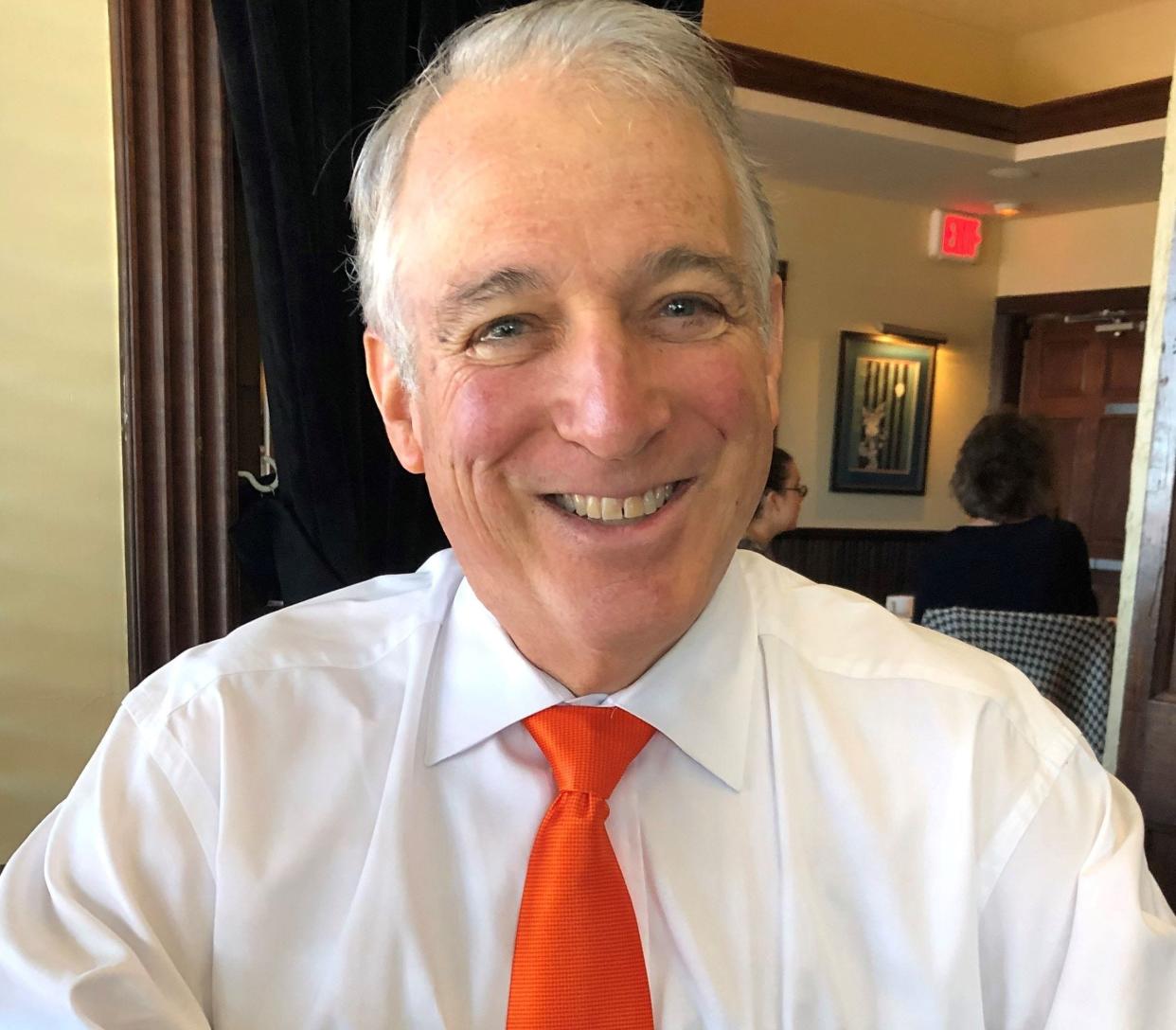Some college campuses have been restricting speech. Oklahoma schools intend to protect it
Every day, we hear a story of another college violating free speech norms. Students at an exclusive West Coast law school effectively bar a federal judge from speaking, claiming he is too conservative. Or the president of a prominent East Coast institution sits by idly while students shout down one of the most liberal members of Congress over the Israeli-Gaza conflict.
If similar conduct comes to Oklahoma, will we be prepared? The answer is a resounding yes, thanks to state Rep. Chad Caldwell's far-sighted House Bill 3543, which Gov. Kevin Stitt signed two years ago this month.
HB 3543 created the Oklahoma Free Speech Committee. An adjunct to the Oklahoma State Regents for Higher Education, the committee trains, reviews institutional policies and accepts complaints regarding campus free speech.
Higher Education Chancellor Allison Garrett and the state regents embraced the new law and went even further. Before the law became effective, the state regents adopted Policy 2.28, which places "commitment to the principle of freedom of expression … at the core of the Oklahoma State System of Higher Education."
According to the policy, "each college or university has a solemn responsibility not only to promote a lively and fearless freedom of debate and deliberation but also to protect that freedom when others attempt to restrict it." That means our college and university leaders know that freedom of expression is central to their institution's mission.
More: Outside speakers axed from University of Southern California ceremony over valedictorian flap
Policy 2.28 is explicit. "Without a vibrant commitment to free and open inquiry, an institution of higher education ceases to fulfill its mission." Free expression and academic freedom are central to higher education in Oklahoma.
A few days ago, the Oklahoma Free Speech Committee held its first biannual training session for college and university leaders regarding the campus free speech rights of students, staff, faculty and citizens. Over 300 college leaders from around the state came to the University of Central Oklahoma and spent over two hours learning about protecting freedom of expression from institutional encroachments. Still more will attend a videotaped replay.
They learned that "it is not the proper role of a college or university to attempt to shield individuals from ideas and opinions they find unwelcome, disagreeable, or even deeply offensive." They heard about the so-called "heckler's veto," by which many improperly try to shut down the right of others to speak. And they even learned that, though we must teach civility, a public college may not censor speech some deem offensive.
The committee first met over a year ago. It consists of nine women and men from varying backgrounds and experiences. Importantly, it is bipartisan. Yet every committee member is committed to promoting freedom of expression on our public campuses.
Expressive freedom requires demanding work, especially regarding unpopular viewpoints. However, American higher education became the world's envy not by indoctrinating but by fostering critical thinking, which is the key to lifelong learning and more civil society.
Campus and community leaders around the nation are watching the Oklahoma free speech experiment. Let us support Oklahoma's higher education and its commitment to expressive freedom.

Andy Lester is a partner in the Oklahoma City office of the Spencer Fane LLP law firm. He is an Oklahoma state regent emeritus and chairs the Oklahoma Free Speech Committee.
This article originally appeared on Oklahoman: Free speech in Oklahoma colleges protected by law
